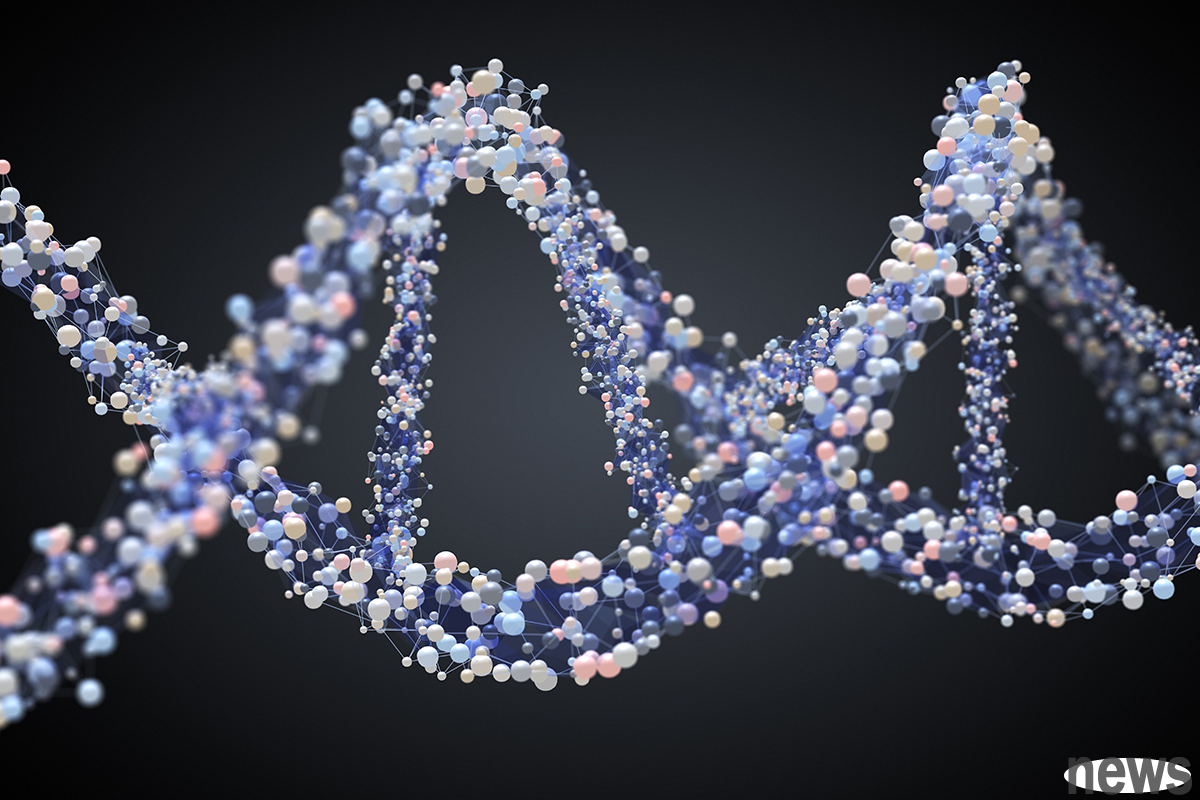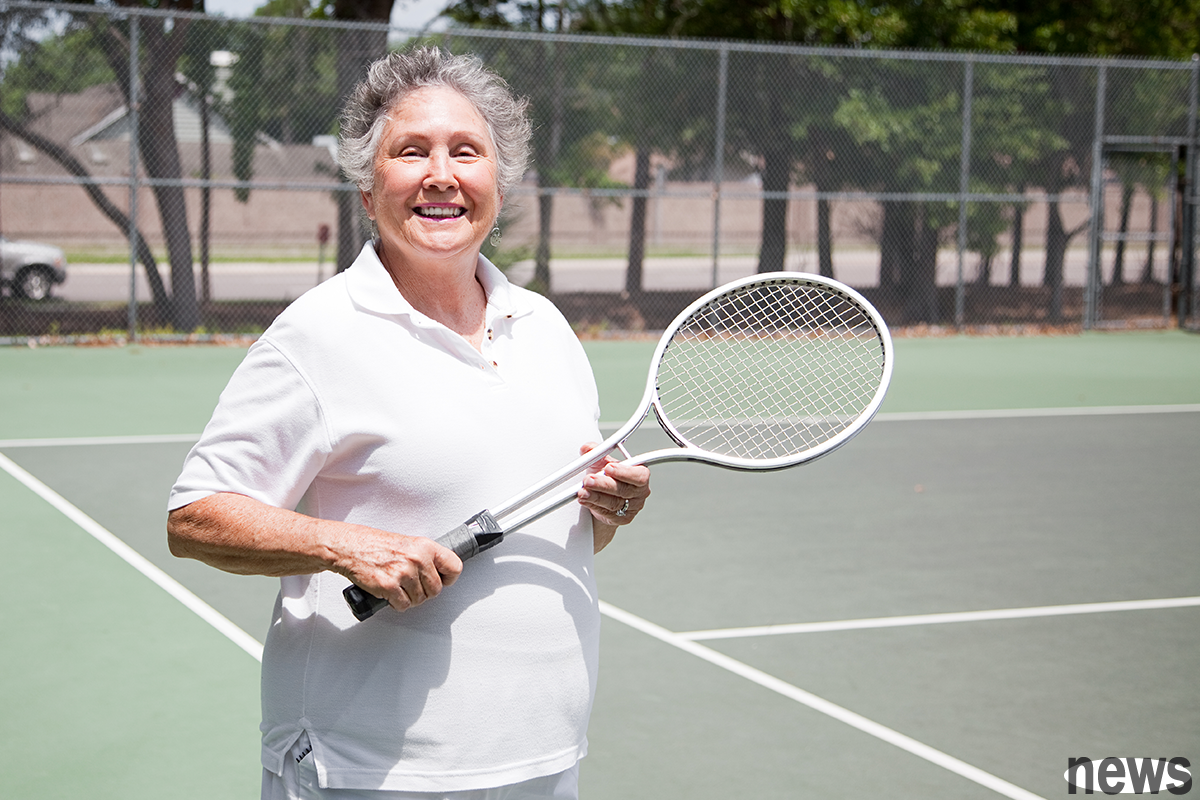Aging is a natural physiological process of human body, but there is always a moment when people feel that they suddenly grow old. This is not your mistake. A recent study published in the magazine "Natural Medicine" shows that although ag...

Aging is a natural physiological process of human body, but there is always a moment when people feel that they suddenly grow old.
This is not your mistake. A recent study published in the magazine "Natural Medicine" shows that although aging continues, it does not develop at a rapid pace; human aging has three speed-changing files, namely 34, 60 and 78.
Why do people suddenly get older in these three ages? Life Times invites several experts to explain in detail the health issues that need to be paid attention to in these years.

Scientists at the Alzheimer's Center for Research at Stanford University in the United States analyzed the blood dysfunction data of 4,263 18-95-year-old subjects. After measuring the levels of about 3,000 different proteins, they found that the overall protein levels remained relatively stable, but at the ages of 34, 60 and 78, the reading of multiple proteins has changed greatly.
Researchers explained that changes in these protein levels are not only a characteristic of human aging, but also a cause of aging.
“As the research continues to deepen, we are expected to measure the degree of aging by molecular level through blood tests. Professor Tony Vis-Core, who led this study, said:
“The more we know about age, the more we can do it. In the future, it is possible that we know exactly what diets and behaviors can help delay elimination and thus help people avoid various diseases. ”
{twenty three} {twenty four}
34: Health turns downhill from the peak of the bodyHuman aging and disease are overall changes caused by cell injury or death. As early as 1925, the famous American biologist Willow proposed: "All key problems in life must be found in cells." ”
文文文 said that although young people are in the stage of being strong in their youth and being relatively mature and stable in their body and mind, the number of cells in the human body and the water in the cells have begun to decrease continuously, which is the first turning point for the aging of the organism.
Liu Dequan mentioned that most people around 34 years old are under the burden of family burden, high work pressure, and complex international relations, which greatly affect physical and mental health. These external factors are causal and related to the intra-protein reading numbers mentioned in the study.
Key points: Neurosystems and musculoskeletons
experts believe that people over 30 should focus on the health of neural systems and musculoskeletons.
The memory and coordination change
After the age of 30, the blood circulation in the brain slows down, the blood flow decreases, and the number of neuronal cells in the brain gradually decreases, which affects the memory, coordination and brain function.
Bone quality begins to lose
The human muscle mass reaches its peak at the age of 25 to 30, and then the age growth gradually decreases, which in turn affects the rate of mechanical augmentation. At around 35 years old, bone quality begins to lose. As the lung capacity slowly decreases, the ventricular wall and valve of the heart will gradually thicken, and the heart transmission system begins to aging. At the same time, lung capacity also began to decline slowly.
is more likely to have psychological problems
Yang Ping said that people around 34 years old may easily lead to psychological problems such as anxiety and depression due to increased pressure and sense of responsibility.
Liu Dequan reminds that with the changes in people's lifestyle and dietary habits, some chronic diseases in the elderly, such as hypertension, diabetes, and dysclerosis, are increasingly occurring among middle-aged and young people. At the same time, the long-term fatigue situation has also increased the risk of chronic fatigue and obesity.

60. People are at the end of menopause and are facing a change in their living conditions. These factors together lead to a faster aging rate.
Key points: Circulation, digestion and immune system
Liu Dequan said that this age should focus on circulation, digestion and immune system.
The heart gradually ages
About 60 years old, the output of the heart beat (referring to a heart beat, the amount of blood ejaculation from one ventricle) is reduced by 30% to 40% compared with the age of 20. The heart transmission system continues to aging, which can easily lead to insufficient blood supply to the organism and misregistration of the replacing.
Digitalization function declines
In terms of digestion, at around 60 years old, the oral, esophagus, and stomach and kidney functions gradually declined. Due to the lipid soaking and atrophy of the atrophy of the adenocardium, the secretion of digestive enzymes such as trypsin and lipase is reduced and the activity of digestive enzymes is reduced, and the digestive function is decreased, and the risk of gastric and kidney diseases is increased.
Immune function is reduced
The endocrine system aging is now in the various hormone levels and the sensitivity of the target organs to it. A decade-long study published in the magazine "Aging" shows that with the increase in age, the total number of T lymphocytes in humans continues to decrease, and their immune function is reduced, making them more susceptible to invasion of bacteria and viruses.
Psychologically, the psychological gap is gradually occurring
Psychologically, people around 60 years old have a change in social vocation due to the gradual decline in physical functions and retirement, which can easily cause psychological gaps and accelerate aging..
Yang Ping also mentioned that more than half of the 60-year-old people have a sense of concern and insecurity about their own health, which aggravates their psychological burden and is more likely to lead to psychological problems such as emotional instability, anxiety, and depression.
78: Systems and machines are rapidly aging78, and all functions of the human body have entered the stage of rapid aging, and there are obvious changes in the neurology, urinary, respiratory, circulation and other systems, as well as cognition and psychology.
Key points: In terms of the whole body and mind, the change of irritation and memory decrease, the number of brain cells and sudden connections in the elderly have decreased, and the blood flow in the brain decreases, resulting in decreased memory loss, fatigue, and reactions to the outside world.
The function of the urinary systolic system has weakened
In terms of the urinary systolic sclerosis and reduced blood flow of the kidneys, which will lead to decreased kidney function.
Elderly men often have prostate hyperplasia, including urine frequency, urgency, and inseparable urinary incontinence; elderly women often experience urinary incontinence due to relaxed pelvic floor surround muscles.
Respiratory muscle strength decline
The elderly will experience problems such as decreased respiratory muscle strength and gas calcification, which will lead to increased air duct resistance, lung air circulation and lung gas exchange function. As the hairiness decreases, the elderly's ability to relieve phlegm gradually decreases. In terms of circulatory changes in body circulation, the ventricular walls of people around 78 years old are thickened and peripheral dysfunction is more likely to cause ischemia of the machine.
The degradation of cognitive function is obvious. The brain function of the elderly at this stage is deteriorating, and the degradation of cognitive function is very obvious.
In 2018, a study published at the American Population Association Annual Meeting showed that brain aging will have about four years of partial cognitive impairment from the age of 73, and Alzheimer's disease or similar cognitive impairment may occur within one and a half years to two years.
Cativity personality disorder
Psychological level, the elderly often show psychological problems such as self-centered, conservative, suspicious, impatient, and inferiority complex, as well as empty-nest comprehensive symptoms.
Responsive aging is the key to prolongingAlthough aging is an irreversible process, we can extend its progress as much as possible. Yang Ping said that aging is the key to prolonging aging, and it is particularly important to maintain a happy attitude. People should promptly extricate their fear of organisms, such as irritability, irritability, and loneliness.
Experts agree that it is important to maintain a good lifestyle and dietary habits regardless of the age.
1. Pay attention to a balanced diet, diverse structures, and grains. Eat more fruits, vegetables, milk, and soybeans. Eat fish, poultry, eggs, and lean meat appropriately, with less salt and less oil.
2. In terms of lifestyle, pay attention to combining, relaxing pressure in time, quitting smoking and limiting alcohol, ensuring adequate sleep, pay attention to balance eating, and maintaining a healthy weight.
3. Adhering to appropriate exercise has an important effect on prolonging aging. It should be noted that the physical quality of the elderly has declined across the board, and the exercise must be progressive step by step. Choose whole-body sports activities with no exercise time and not very strong, such as walking, brisk walking, and Taiyang boxing.
4. Finally, no matter which group of people, you must persist in regular inspections.
Liu Dequan reminds that family members have a very positive effect on the physical and mental health of the elderly.
When facing people around 60 years old, family members should help them arrange their retirement life and encourage them to cultivate their enthusiasm and love, so that they can have fun and make things happen in their old age.
Most people around 78 years old will feel empty nesting after their children leave. In addition, they often pay too much attention to their health, so their families should take care of themselves and communicate with them at this time.
This article is redirected from Lifetime News WeChat (ID: LT0385)